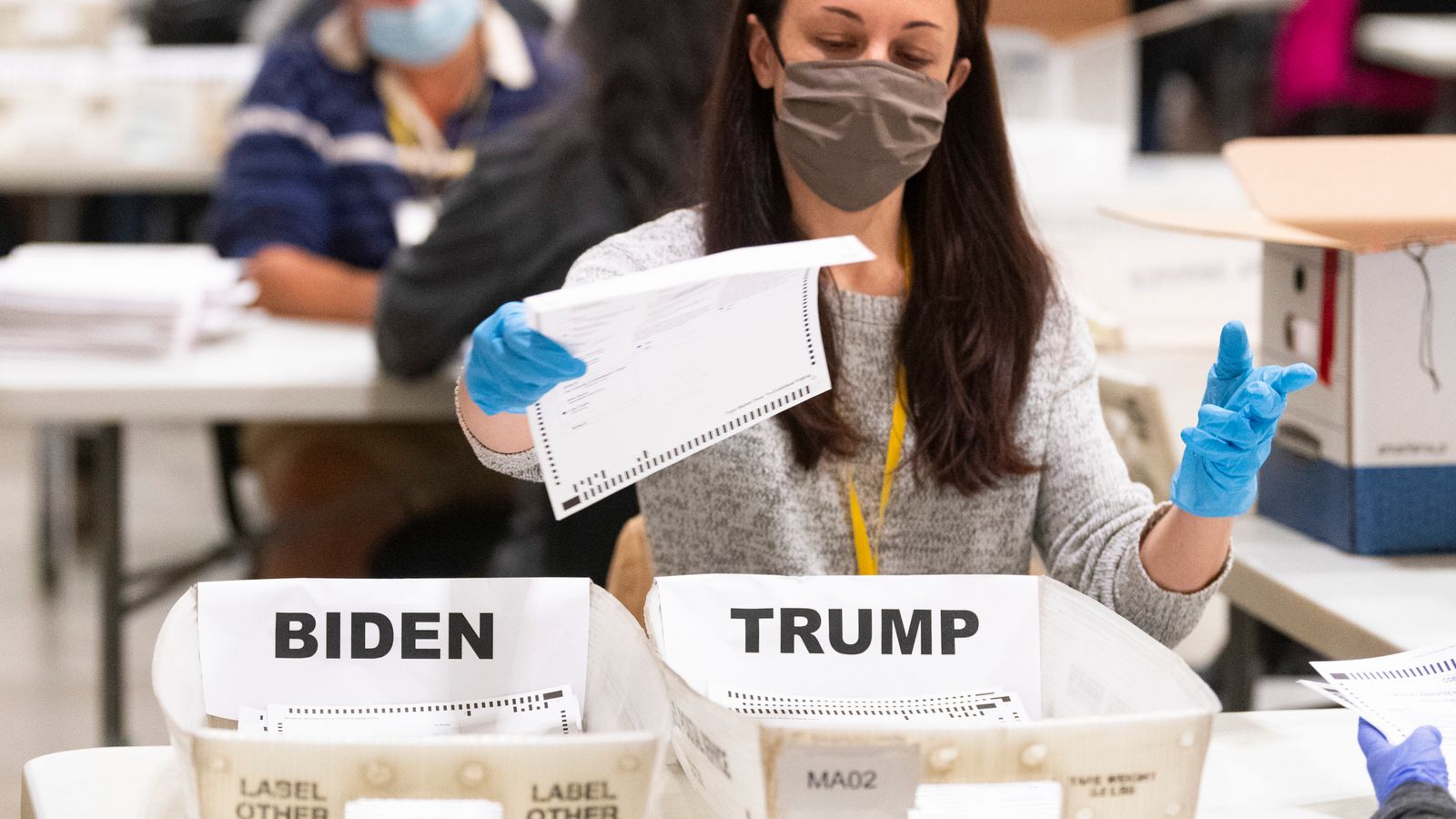As prosecutors would have it, election interference in Georgia came with a soundtrack.
It’s the one that goes: “Fellas, I need 11,000 more votes, give me a break,” and it’s at the heart of this case.
They were Donald Trump’s words in a recorded phone call between Donald Trump and Georgia’s Secretary of State Brad Raffensperger on 2 January 2021. Trump was asking the official for votes he didn’t have in an election he didn’t win, and floated the idea of criminal prosecution if he didn’t get them.
Prosecutors believe they have the recording of a criminal committing the crime – of a defeated president ringing round with claims of a rigged election and putting pressure on state officials to help him steal the result.
Whatever it was, it prompted the investigation into election interference in the state of Georgia.
The call in indictment number four already features in number three. Both now have it as a centrepiece in a pattern of behaviour aimed at overturning an election result, allegedly.
Georgia has laid it out in a so-called RICO charge. It’s the Racketeering Influenced Corrupt Organisation Act, a prosecuting tool aimed at targeting mafia crime.
Trump set to face charges including forgery conspiracy from Georgia prosecutors – report
Donald Trump: Prosecutors’ desire for January Capitol riot trial date sets up clash with primaries
Donald Trump defends ‘harmful’ social media post as ‘political speech’
Read more: What are the investigations the former US president is facing?
The ‘Don’ at the centre of these new charges faces increased criminal exposure and the list of supporting cast members is also extended, with all the potential they bring for ‘flipping’. Will targeted individuals, minor players yet with information to divulge, choose to share it and take the target of their back? Prosecutors will hope they are given a push by the rules.
Whilst a federal crime can be subject to presidential pardon (perhaps by a victorious Donald Trump at the next election?), convictions at state level are not.
Alleged co-conspirators might well feel the pressure from a state indictment that doesn’t apply in federal prosecutions elsewhere.
The more detail that’s aired across a ‘suite’ of prosecutions, the more Donald Trump’s alleged assault on US democracy will be laid out publicly. So, of course, will his defence.
Trump has already filed the latest indictment under “witch hunt”. He calls the phone conversation with Brad Raffensperger an “absolutely perfect phone call”. His attorney John Lauro describes it as an “aspirational ask”.
It’s the aspirational defence that will now be a matter for a judge and jury to make a neutral assessment. The partisan view from the Trump camp continues to be supportive.
If a fourth indictment is no surprise to Donald Trump, neither is it a disappointment, if he’s to be believed.
“We need a fourth indictment to close out this election,” he said recently.
Team Trump reckons that when his supporters are told “indictment”, they hear “injustice” and that the greater the detail, the more it is noise ignored.








